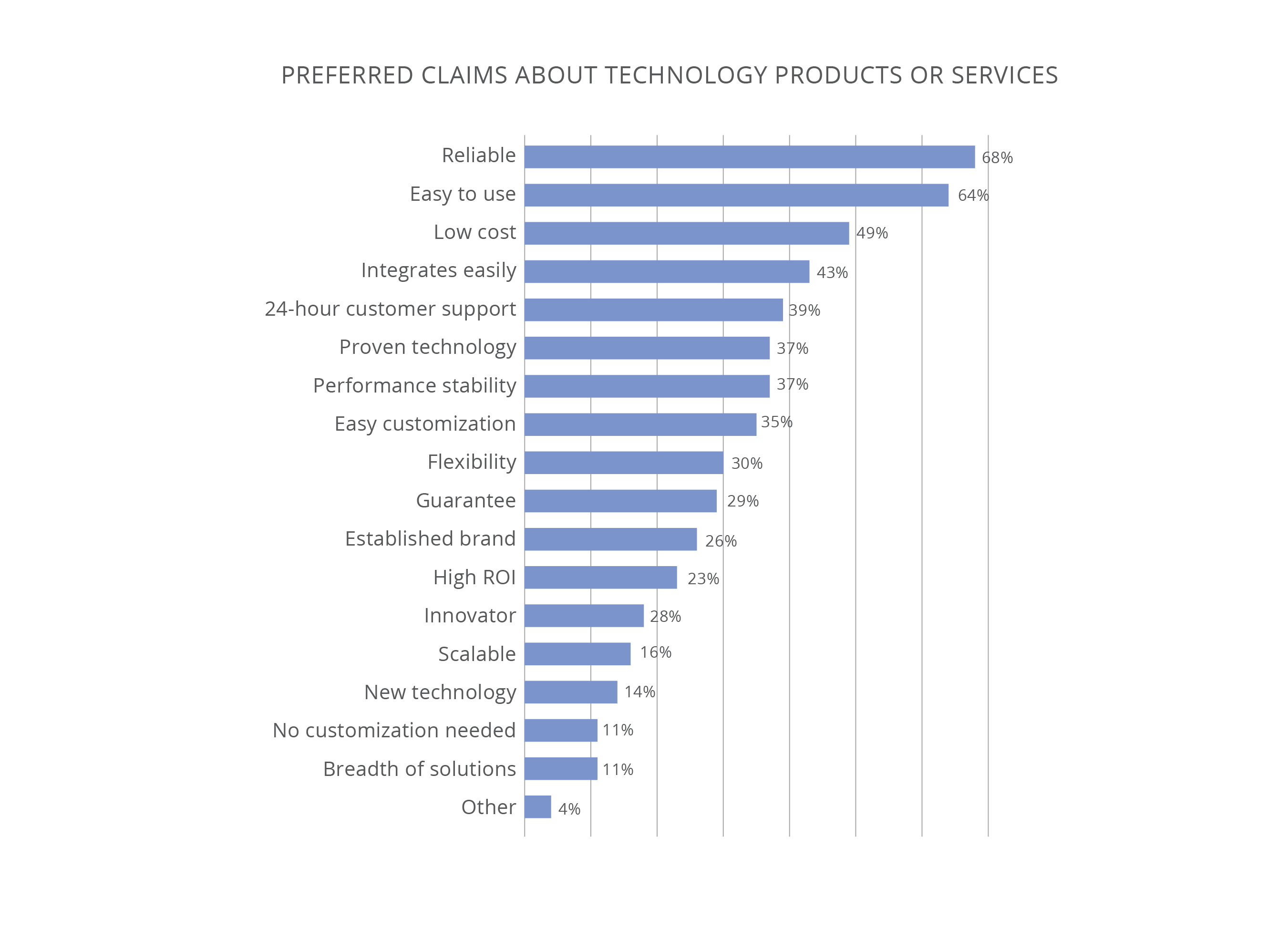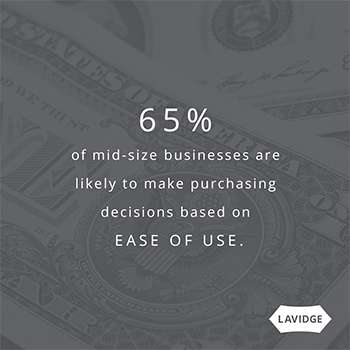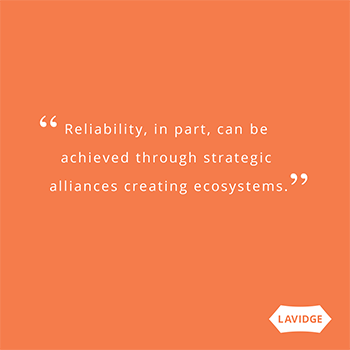Need fresh thinking? Help is a few keystrokes away.
Don’t Let Me Down.
This article is a brief abstract of our exclusive study about business-to-business consumers and their preferences about advertising and marketing for technology-related products and services.
Download the complete 2017 U.S. Technology Marketing Report
Before we can market technology to B2B buyers—before marketing anything, really—it’s crucial to understand purchasing behavior. So, prior to creating an advertising or public relations campaign for B2B tech, we must discover buying preferences. That’s exactly what we’ve done.

Some things just have to work. In today’s fast-paced world there is often little to no margin for error. With the humanization of technology, we can now interact with Amazon® Echo®, Google Home Assistant® or Apple™ Homepod™ smart speakers without using a keyboard or screen. With Nest® smart home-automation, networked devices silently communicate via the Internet of Things (IoT). As a result, consumers increasingly expect technology to work effortlessly behind the scenes.
 It's not surprising, then, that content marketing and advertising claims about reliability and ease of use are deemed most preferred when choosing business technology products or services.
It's not surprising, then, that content marketing and advertising claims about reliability and ease of use are deemed most preferred when choosing business technology products or services.
Among survey respondents who participated in our exclusive survey, 68% rated reliability as the most preferred claim when choosing a technology product or service, with 64% choosing ease of use.
CEOs who participated in a report published by "Big Four" auditor KPMG®, showed interest in investing in technologies that help their operations run more reliably and smarter including data analytics (61%), cognitive technologies (58%), and the IoT (55%), between 2017 and 2020.
Reliability, in part, can be achieved through strategic alliances creating ecosystems. Consider the following unlikely alliances:
- General Motors® has teamed up with a ride-sharing service and acquired a company developing artificial intelligence (AI) for self-driving vehicles. By 2020, Gartner® predicts 220 million cars will be connected.
- CVS Health® is partnering with IBM’s Watson® and Teladoc® to provide better, more reliable service for patients at its Minute Clinic® than it could alone.
- Google®, Facebook®, Amazon, IBM and Microsoft® teamed up to advance AI—making it more reliable for everyone and developing industry standards along the way.

This extends beyond software and professional services. Partnering with quality suppliers of the hardware or firmware needed to produce dependable products is essential to Avnet®, a global electronics distributor based in Arizona. Avnet offers a Reliable Ethernet Network kit, for example, to build redundancy into communication systems for use in Industry 4.0 and the Industrial IoT. The promised result is zero downtime—arguably worth whatever it takes to achieve.
Creating ecosystems and alliances can impact more than the bottom line. Avnet, for example, when it widened its reach to include digital solutions by acquiring Informatica® in early 2017, positioned itself as a major player in solutions for the cloud, big data and real-time streaming. It also put itself at risk in a new way, requiring additional responsibility to ensure the same reliability in its digital offerings.
Consumers have little patience for data breaches, such as the Equifax® massive blunder in mid-2017 which exposed the personal data of more than 143 million Americans. Building digital trust, in addition to ensuring cybersecurity, encompasses protecting privacy and operating under a code of digital ethics. Accenture’s Technology Vision 2017 report suggests adopting blockchain, smart contracts, differential privacy and homomorphic encryption technologies to increase forensic traceability, allowing a trusted third party rather than government oversight in favor of self-governance, using data from individuals to learn about groups—without putting individual information at risk.
 The demand for reliability varied little based on the size of organization, with a mere 7 percentage points between the small business 67% preference and their larger counterparts of more than $10 million in annual revenue at 74%. It cannot be ignored.
The demand for reliability varied little based on the size of organization, with a mere 7 percentage points between the small business 67% preference and their larger counterparts of more than $10 million in annual revenue at 74%. It cannot be ignored.
Ease of use scored similarly among all revenue brackets with an 8 percentage-point gap, but in reverse order.
Larger businesses ranked preference of ease of use at 58%. The smaller the business, the more important it became with small business ranking their preference at 66% and mid-size businesses weighing in at 65%.
There is much B2B technology marketers can take away to improve their strategy, marketing services and marketing campaigns.
In short: insights reveal that your brand must be reliable, it's crucial to develop alliances in some situations and it's important to make working with your technology intuitively simple.
Finally, for best results, savvy B2B technology marketing firms can benefit from working with an agency with expertise on when and how to prioritize integrating these insights in client presentations based on the size of the prospect.

2017 U.S. Technology Marketing Report

This article is a brief abstract of our exclusive study about business-to-business consumers and their preferences about advertising and marketing for technology-related products and services.


